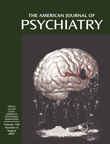Biological Psychiatry: Principles of Medical Biology, vol. 14
Biological psychiatry is clearly growing by leaps and bounds, with data pouring forth from hundreds of basic and clinical research laboratories. From time to time good textbooks summarize the field, providing novices with orientations and starting points on which to base subsequent learning. These texts also enable those already engaged as researchers and clinicians to catch up on recent developments springing from areas in which they are not directly working.
Good book editors are clear about whom they are writing for and what their audience needs. Students do best with pictures, tables, nonpedantic writing, and coherence in “voice” to help them envision, understand, and assimilate complex concepts. The most successful texts, peer-reviewed journals, and throwaways understand these requirements.
Unfortunately, from several of these perspectives Biological Psychiatry, edited by Bittar and Bittar, falls short. The book’s purpose and its target audience are never made clear, although I assume the authors intended this to be a textbook for undergraduate or graduate students. No scheme is provided to explain how chapters are grouped or sequenced. Although the editors have enlisted an interesting international group of authors from academic settings and the pharmaceutical industry, they have not done a good job of providing an overall uniformity of target level or voice. As a whole, the 26 chapters do not hang well together. Some chapters are highly informative, well-written “primers,” whereas others are pedantic in tone and assume considerable previous knowledge of biological psychiatry on the part of the reader. Some chapters are extensively referenced, whereas others feature short lists of references followed by “recommended” or “selected” readings. Although the editors’ preface is sprinkled with author’s names (in parentheses following allusions to certain studies), not a single citation is provided, so that interested readers would have to go to Index Medicus or Ovid to search out these studies. On the whole, relatively few chapters contain illustrations, schematics, or cartoons, and the book includes no illustrations of brain imaging, electroencephalography, or even a single synapse. Some chapters, e.g., those on child abuse, eating disorders, and homelessness, are remarkably thin on biological issues. Entire areas of importance in biological psychiatry are treated as asides, e.g., anxiety disorders and sleep disorders. There are no chapters on the investigative methods of biological psychiatry. Some authors fail to cover important current work in their respective fields: e.g., the chapter on consciousness neglects the writings of Edelman and Tononi, and the brief section on treatment of anxiety in clinical practice in a chapter on fear and anxiety mechanisms does not even mention the use of selective serotonin reuptake inhibitors.
As a result, it is hard to know to whom to recommend this book. Those receiving a gift copy may get something from skimming through the volume and reading selected chapters, depending on their interests and experience. However, new students and others wishing a contemporary update in biological psychiatry will find better sources elsewhere.



